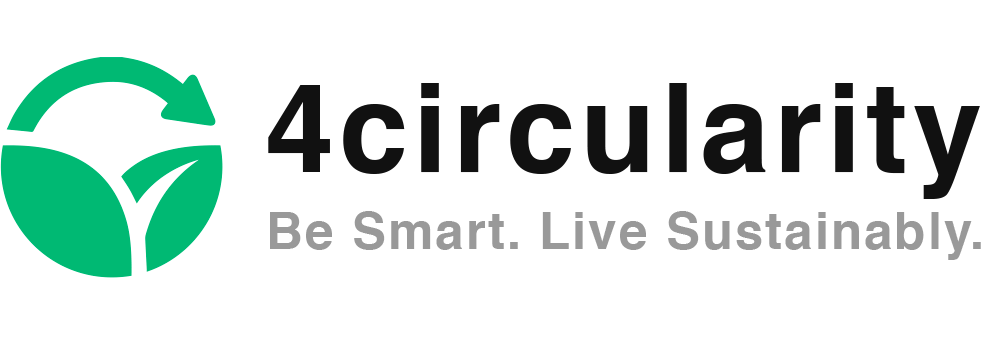This week I received an official certificate from successfully completing an 8-week online course in Business Sustainability Management at the University of Cambridge Institute for Sustainability Leadership (CISL). It was amazing to collaborate with sustainability-minded specialists from all over the world representing different industries and being entrepreneurs or from private or public sector organisations.
How to make sustainability as the core of the business? Is the business a good corporate citizen? Companies need to rethink their business practices from products and services, business processes and supply chains aspects. The course reinforced the need for change regardless the industry. Now, I would like to share with you the five most important aspects businesses must excel when making a systemic change towards sustainability.
1. Systems thinking
Systems thinking means viewing problems as part of an overall system, holistically. Fresh water use, for example, as a global issue, must be looked at from social, environmental, economical and governance aspects. An important starting point is to identify the global challenges and the potential industry specific challenges that the company’s operations have an impact.
2. Long-term mindset

Connecting sustainability to the business strategy requires a long-term mindset. Moving away from the short-term “take-make-waste” linear consumption models to the long-term “take-make-use-reuse” multi-cycle model is also taking a new mindset of looking at the business making. Thinking about the product end of life is extremely important and necessary in order to benefit from circular economy. In the short-term business models where creating quick profits to the shareholders does control the business decisions, in the long-term sustainable business model investments are made regarding long-term growth.
3. Transparency

Businesses that are really embedding sustainability into their strategy are open, honest and transparent on what they are doing. Being transparent also means telling openly about the problems, the “why” factor, and how the company aims at tackling the problems. The power of communication and marketing techniques assure the right message delivery to the customers and other stakeholders. Over claiming and telling in bland terms about how much the company cares about the society and environment and states how sustainable their products are, proves Greenwashing.
4. Stakeholder and employee engagement

Sustainability marketing aims at creating an open dialogue with the customers and other stakeholders by helping them to become more sustainable. The communication must “touch” somehow the people, in an emotional level. For that, it is important to place socio-ecological problems and consumers overall behavior to the core of sustainability marketing instead of just selling products and services.
Employees, who are fully engaged to the mission of the company and skilled in delivering the company sustainability message, are keys for success. Each company needs these sustainability champions who act as the levers of change inside the company by teaching the other employees in sustainability. For overall employee engagement it is important that each employee understands the connection between sustainability and their daily work.
5. Partnering

Better results and greater progress can be achieved by creating efficient partnerships. Each partner brings different resources and skills to the partnership. Strong network for knowledge and best practices sharing provides the group with greater credibility and support for achieving their common sustainability goals. Innovations, scaling and redefining the industry standards are examples of successful results of partnerships. One example of collaboration is a pre-competitive setting where the aim is to tackle something in the industry which hasn’t been solved before. Partnering with others, the companies get many more benefits than what they would get if acting alone.
I can highly recommend it!
I highly recommend the 8-week online course in Business Sustainability Management at the University of Cambridge Institute for Sustainability Leadership (CISL) for anyone passionate about business sustainability. It gives the tools you need to bring forward ambitious sustainability plans either in a company you work for, in sustainability consulting to help your clients or in the job search of any sustainability related job.
The extremely well-structured material with online discussion groups, interesting assignments and tutors competence and support all deserve 10/10. It’s totally worth of every penny! You will connect and exchange with so many like-minded professionals from different industries and might even find a business partner!
I personally disconnected from social life for the duration of the course. With a full time job I had only time for the course during the evenings and weekends. The course gave me the last push, enough courage and competence to make a radical change in my professional life. A total shift from one career path to another. I met a like-minded person with similar ideas in the course and I am currently building a new business with this business partner around business sustainability.


I want to enrol
Happy to hear! It is really worth it! Good luck 🙂
I’ve just missed the deadline for their most recent intake but definitely plan to do this next year – it looks incredible! This is such a helpful blog in terms of real feedback – thank you 🙂
Are there any text books or readings you could recommend whilst I wait for the next course to become available…?
Hi Julia, great to hear from you! I think that the Business Sustainability Management online course has from 3 to 4 intakes a year, so you will definitely be able to register at the beginning of next year. I read recently two books that could interest you too. First one was The future that we choose – Surviving the Climate Crisis by Christiana Figueres and Tom Rivett-Carnac and the second The circular economy handbook – Realizing the circular advantage by P. Lacy, J. Long and W. Spindler. Both are very informative, hands-on and powerful insights on the importance of sustainability actions in creating a better, safer and healthier world.
Thank you so much!! These are brilliant recommendations – I appreciate it
Thank you very much for your recommendations. I would like to ask you if you recommend this short course for all working fields? I am currently working as a consultant in a CSR company, with an international business background, and I would like to ask you if this course really pushed you to clear some ideas and move forwards with new projects and executing them? Thank you very much in advance!
Hi Daniela! Honestly this short course provided me exactly the output that I was looking for one year ago. Four months after the course I left my previous career to build a new company around sustainability performance measurement with a peer I met in the CISL online course. We are very close to launching the cloud-based tool, SDG Monitor now so I can say I’ve really moved towards something totally new and executing my passion. The course itself is very demanding so you easily don’t find time to interact with the other participants. However, you should make the effort. I had so many valuable multi-sector discussions with the other participants during and after the course that no matter field you come from, you will get a lot of insight to your current work and courage to go for your passion on sustainability. Let me know what you decided about the course!
Hi Tuuli-Anna! I am also considering taking this course. Are there actually exams that you have to take or papers that are submitted? Or do you just listen? Thank you for your help! 🙂
Hi Cora! Happy New Year! The CISL online course consists of 8 modules and each module have plenty of written and audio materials as well as interactive exercises with the group. In each module you will have a different task to do and return before the next module starts. Basically you have one week to work on an assignment per module.
Thanks for great insight into what to expect in course.
How accurate is estimation 12-15 hr per week, what is your experience? I am weighing if it is possible for me time wise (Fulltime job, kids, single mom..) thanks
Hi Tina! Honestly I studied double that time because my objective was to learn as much as possible through the course materials, reading extra and exchanging with peers. I still worked fulltime and it was feasible. So, it is totally up to you how much time you are ready to invest in it.
I have also earned my certificate and have the luxury in that I already assist large companies to plan their carbon reduction plans so I get to see progress every day but know that it is no way near enough. I agree it is necessary to try and stay positive. Most people know the threat but not the opportunity.
If I were to add anything to your list it would be to understand that not everyone is as motivated as you, be confident in selling the case for sustainability but think of it in context with the company you are working with.
Excellent comment Peter! and congratulations of the CISL course certificate. It truly is an honor and luxury to get to work with companies who have seen the light and who are taking concrete actions to start setting their baseline, finding data and measuring their performance towards their targets. I believe that everything starts from people, and that should be sustainability communication’s first step to tackle too, and before the employees can be engaged with the company sustainability policy.
Hi Tuuli-Anna,
I landed in your article looking for reviews about this short course. I love the content but my sole concern is that I am an independent consultant, therefore I don’t have an specific field or business to which develop a tailored sustainability plan, which seems to be a big part of the take-away. Actually the last module is mainly that. How was your experience?
Thank you for your feedback!
Hi Andrea!
Thank you for your comment. When I took the intensive course I had the same concern as I didn’t have a business to which I would have done the case. I solved it so that I chose an industry that interested me the most and a frontrunner company operating in that industry. You will learn to identify industry specific sustainability KPIs as measures are a lot industry based. There are many independent consultants in the course so you will definitely have a lot to talk about, exchange ideas and knowledge together. Let me know what did you decide! 🙂
Thank you very much Tuuli-Anna for your prompt input! It is very encouraging to know that you were able to do that. I am just waiting for some additional information on a similar program given by Oxford and then I’ll decide. Thank you very much again and all the best!
long-term “take-make-use-reuse” – i’m wondering about the “return” part to the “take” part. I guess this completes the cycle for humans context, but how about the whole ecosystem context, the aboriginal and native beings near where things are taken. can we truly have a “guilt-free” life participating in the market consumption system? just a thought I have in case you have some on it too .